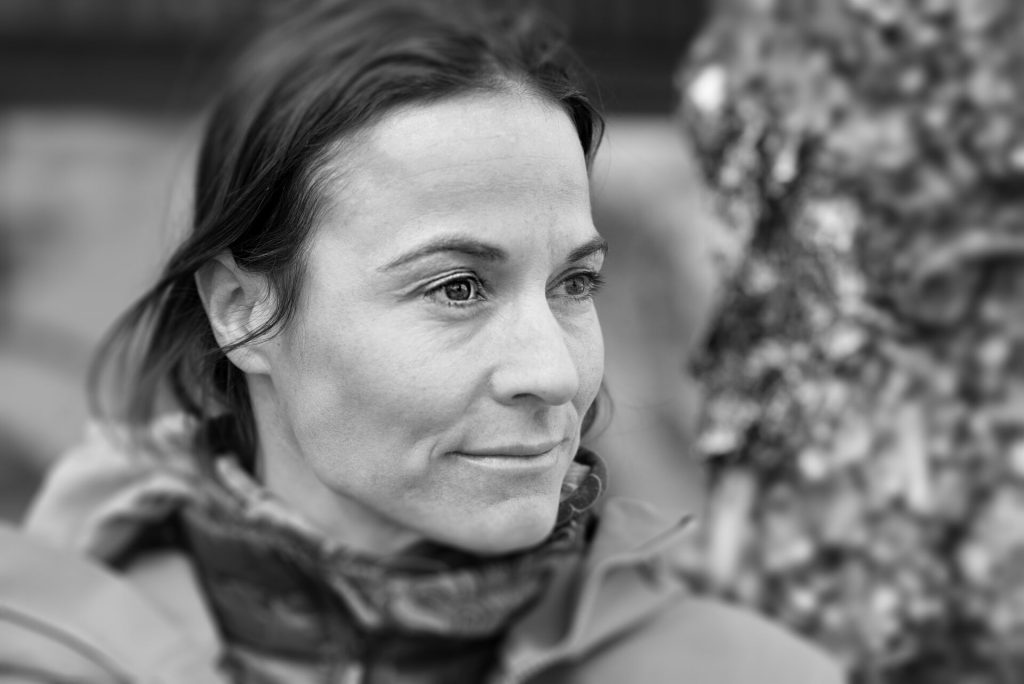
Back in the day when air transportation didn’t exist and long distance communication was still in the form of the written word, travel wasn’t really travel unless things went wrong. Not infrequently, catastrophically wrong. Today, most travel is for pleasure and we plan meticulously to insure nothing goes awry when we head to the airport on our rendezvous with leisure. Thankfully, there is a category of human being who likes to take the old-fashioned approach. When they take flight, they’re embarking on genuine unadulterated adventures and expeditions. Although also painstakingly planned, expeditions remain journeys into the unknown; often testing the limits of physical and mental fortitude. A large and curious audience gathered at Auditorium Theatre Tuesday night to hear a modern-day adventurer talk about what it’s like to put it all on the line for what makes you complete.
In the last of this season’s National Geographic presentations highlighting inspirational women held in conjunction with the Auditorium Theater; everyday people got the chance to walk in the shoes, see through the eyes and glimpse into the soul of a natural born risk taker.
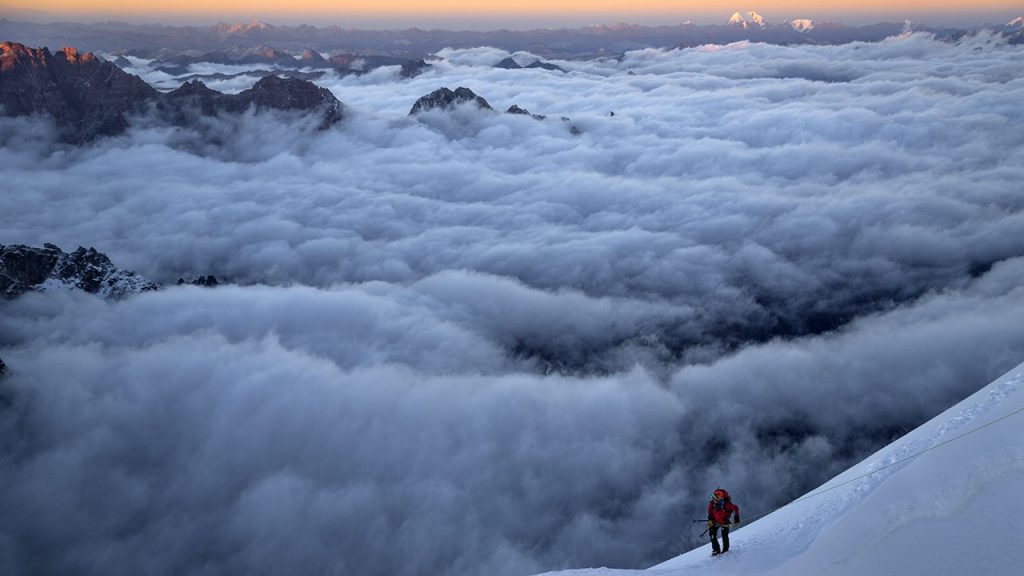
Hillaree Nelson’s physical presence was the first clue to her uniqueness. Striding onto the Auditorium stage with the muscular leanness of an Olympian in tall black boots and matching Matrix sleek one piece dress, she appeared a living testament to fitness. Every inch an elite athlete. Happenstance, curiosity and love of nature and sports led her to France after graduating from college where she discovered ski mountaineering; the portal to extreme mountaineering; her true passion. Testing her grit on mountains and volcanoes around the globe and becoming the first woman to climb consecutive 26,000’ peaks in only one day; National Geographic named her one of the foremost adventurers of our age. It then extended her a National Geographic Explorer Grant to lead a team on a first ascent of 19,000’ Hkakabo Razi in Burma, now Myanmar. She would spend a little over an hour dissecting the reality of that expedition.
Considered extremely dangerous and little known to most of the world, Hkakabo Razi has only been successful climbed, using different routes, twice. The 2015 attempt made by Nelson and the other four members of her team; including National Geographic photographer, Cory Richards, would become the basis of the award-winning documentary, Point of No Return; as well as for Nelson’s Auditorium presentation.
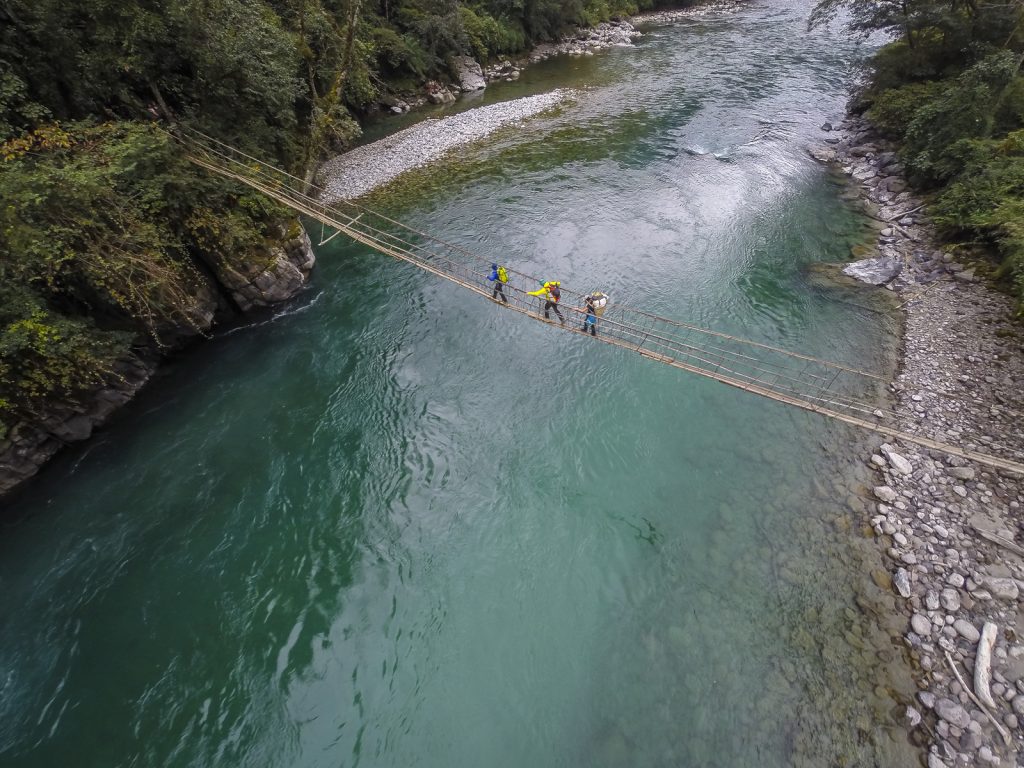
It soon became clear that transcendent toughness, both physical and mental, are essential in the world of incomparable challenges. During her presentation and equipped with captivating video and stills taken by Richards, the audience was able to not only imagine but to see how harrowing such an expedition is.
Climbing aboard a Burmese passenger train known as the “Death Train” because warped tracks would routinely cause it to fly off rail killing scores of people was a “never again” ordeal. The 148-mile hike that followed from the train to the mountain included winding through snake infested jungles filled with ravenous insects. Persistent bureaucratic hurdles dramatically slowed their process and even threatened to suffocate their mission. The same delays caused them to lose two-thirds of the porters contracted to help them. Food, provisions and even clothing had to be sacrificed in order to move forward. Severe food rationing, significant weight loss, continuous 70 mph wind assaults, and high stakes gender-centered tensions made up the fabric of what became a grueling odyssey.
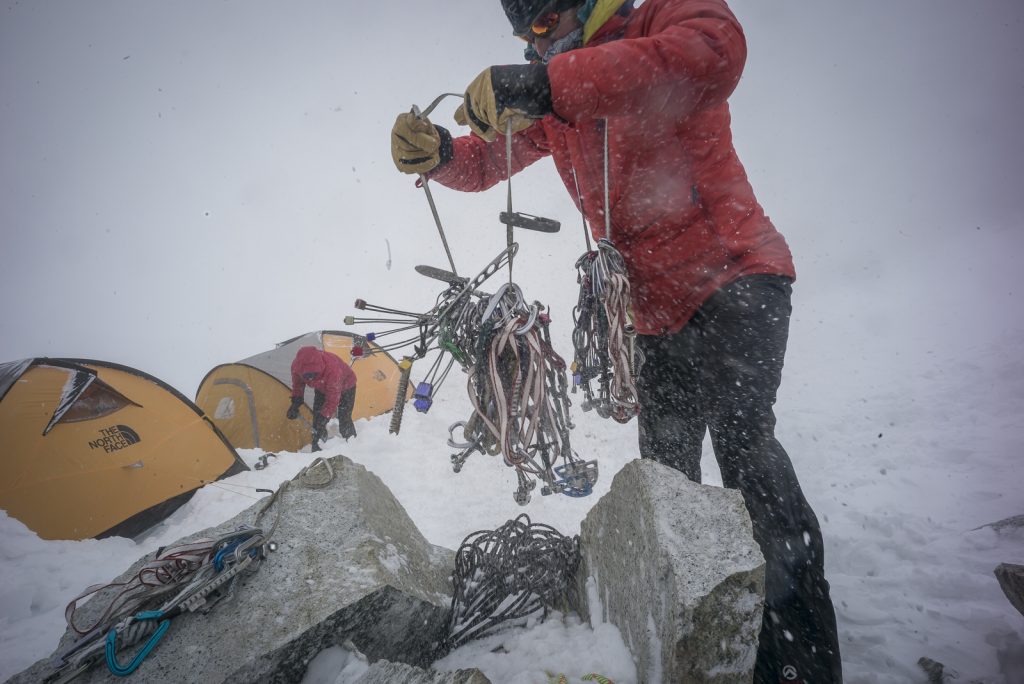
Speaking candidly and honestly about the very real perils of a passion that demands so much of the human body and one that flirts so openly with death, Nelson admitted that people who do extreme mountaineering (anything over 18,000’) share an uncommon awareness and understanding of death. One that may or may not be linked to the necessary pain and suffering required to climb massive mountains. Admitting that only when she was pushing herself to challenge her absolute physical and mental limits does she attain the wholeness she seeks, she reveals how she came to understand and accept herself.
Detailing the lengthy preparations mandated for such journeys and the excitement of traveling through exotic cultures eventually led her to speak openly about her own encounters with death. About a woman under her supervision who died suddenly in the midst of an expedition and the many friends she’s lost who shared her need to go where so few have the tenacity, ability or passion to go.
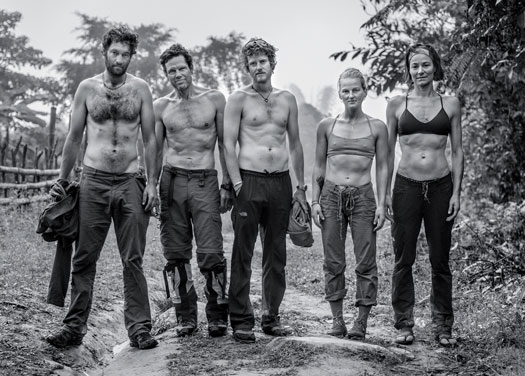
As a mother of two young sons who at 9 and 11 are growing into the ability to comprehend the complexities of what it is to have an irresistible calling in life, she seems relieved that she can finally explain to them why she must do what she does. In a New York Times Opinion piece last month, Francis Sanzaro of Rock and Ice and Ascent magazines, declared, “alpinists are highly analytical, supremely aware and often tightly controlled” people. Given the unflinching focus and precise cognitive clarity needed to endure the vast physical and mental demands needed to climb the world’s tallest peaks, mountaineering at Nelson’s level likely demands all of those things. For her, it is only by sacrificing herself to the suffering mandated in these expeditions does she find the internal peace that everyone craves and the fortunate few find in myriad different ways.
National Geographic Live
Hillaree Nelson
Point of No Return
May 7, 2019 7pm
The Auditorium Theatre
50 E. Ida B. Wells Dr.
Chicago, IL 60605